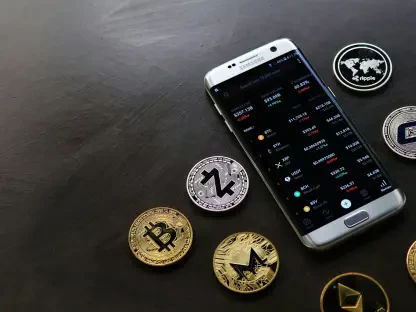In a rapidly evolving world of financial technology, European investors are poised for extraordinary breakthroughs. Robinhood’s innovative endeavor to tokenize US securities is stirring anticipation across financial markets, promising to transform investment landscapes. As blockchain technology increasingly integrates into financial services, both seasoned experts and curious newcomers are closely examining this compelling venture. By leveraging decentralized finance capabilities, Robinhood plans to offer enhanced cross-border access to US equities, revolutionizing established norms and unlocking new investment opportunities globally.
Navigating the Paradigm Shift in Asset Tokenization
In recent years, the concept of asset tokenization has gained momentum as a transformative financial tool, reshaping traditional business models with newfound accessibility. Historically, geographical constraints and institutional oversight defined financial markets, limiting participation and boundary-less exchange. Blockchain technology breaks these barriers, providing a decentralized alternative and introducing greater efficiency, transparency, and security. Prominent industry figures and entities, including BlackRock, have embraced this movement, fostering innovation that Robinhood now seeks to champion. Robinhood’s approach epitomizes the rising consensus that digital asset tokenization is key to future market evolution.
Embarking on a Strategic European Expansion
Securing a brokerage license in Lithuania solidifies Robinhood’s strategic path, emphasizing its commitment to serving European investors. This move highlights Robinhood’s meticulous navigation of regulatory landscapes, ensuring compliance while pioneering innovation. The platform promises immediate settlements and uninterrupted market access, enhancing current financial services. Nonetheless, aware of potential regulatory hurdles and acceptance challenges, Robinhood remains focused on maximizing these advantages. Setting its sights on European markets, Robinhood’s initiative aligns seamlessly with its global expansion goals, reflecting a balanced fusion of ambition and adaptability.
Industry Trajectory: Tokenization as the “Next ETF”
The financial industry acknowledges asset tokenization as a pivotal bridge between classic and contemporary investment offerings, revolutionizing how markets operate and perform. Tokenization enables fluid transactions and universal asset access, effectively positioning itself as the successor to traditional ETFs. Institutions like BlackRock have already explored tokenization, demonstrating vigorous institutional interest. However, while opportunities arise, inherent cybersecurity risks and valuation challenges necessitate cautious navigation. By analyzing precedents within the sector, Robinhood is carving a path for broader fintech engagement with this technology.
Robinhood’s Strategic Exploration of Blockchain Networks
In its ambitious pursuit of blockchain-enabled innovations, Robinhood is assessing various architectures to support its asset tokenization platform. Blockchain networks like Ethereum, Solana, and Arbitrum each offer unique advantages, ranging from Ethereum’s robust ecosystem to Solana’s scalability and Arbitrum’s cost-efficiency. By discerning these operational strengths, Robinhood aims to enhance user experiences and ensure seamless transaction environments. Recognizing market dynamics and technological complexity, Robinhood’s exploration represents significant investment in technological advancement that can drive market transformation.
Analyzing Market Collaborations for Strategic Alignment
Robinhood’s alignment with seasoned industry leaders fosters collaborative growth within the asset tokenization realm. Figures like BlackRock’s CEO have endorsed tokenization’s potential, predicting a revolution in investment practices due to perpetual access and instantaneous settlement benefits. Initiatives such as BlackRock’s substantial investment in tokenized funds illustrate the sector’s burgeoning enthusiasm. Robinhood’s approach resonates with these insights, contemplating tokenized platforms that may redefine how securities traverse jurisdictions and highlight the retail brokerage industry’s unfolding future.
Reflecting on the Outcomes and Strategic Opportunities
Robinhood’s venture into tokenization signifies a major turning point for financial access among European investors. Bridging TradFi with DeFi solutions, Robinhood addresses barriers like delayed settlements and high transaction costs, drawing new retail investors from underserved areas. If Robinhood’s initiative succeeds, other brokerage firms could follow, enhancing blockchain adoption across traditional markets. Robinhood’s initiative reveals a growing consensus that blockchain signals capital market innovation and inclusivity on a global scale.
In closing, Robinhood’s exploration of blockchain technology deeply influenced global expansion and financial integration, aligning with pivotal industry trends. The development highlights Robinhood’s ambitious strategy, marking a shift in financial landscapes driven by tech advances and decentralization aspirations.









